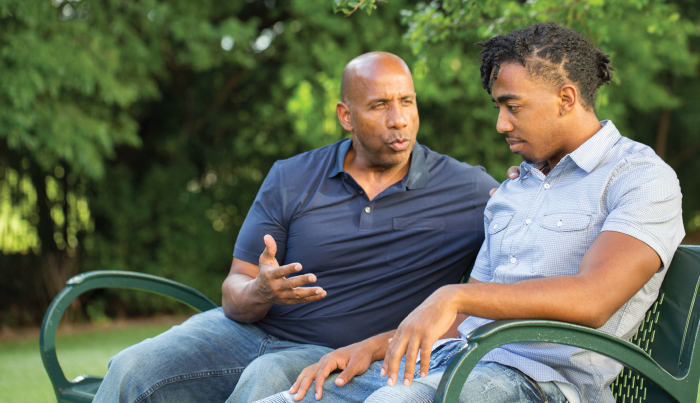
17 Aug Becoming a better parent: Parent versus Friend
Our Westview team member, Terry Owens, continues our series, Becoming a Better Parent. In this article, Terry encourages us to be the parent, not the friend.
Becoming a parent is one of the best things that can happen in our lives and, perhaps, the scariest. This tiny human is our responsibility. What we know about parenting is based on our own raising, and that is often a mixed bag. Parenting is passed from one generation to the next. With some modifications, I know that is how I raised my children.
Over the years, my work with families and their children has taught me that imitating one’s parents—or avoiding everything one’s parents did—is not always the best way to parent. I have observed, for example, that parents who grew up in a low-income environment want to provide things for their children that they never got growing up. This may mean buying the bicycle or toy they wanted, or giving them the best of everything. Please don’t misunderstand me; it is wonderful to be able to provide things you never had, but you can go to the extreme and try to live the childhood you never had through your children. By providing only the best and avoiding saying “no”, you risk establishing a friendship relationship and not a parental relationship with your child. Then, when you have to say “no”, your child will exhibit challenging behaviors.
Among the roles we have as parents, two important roles that must be balanced are the emotional and functional roles. The parent who wants to be their child’s friend leans to the emotional role, which is built on love, affection, and esteem. Emotional connection-building is beautiful to watch, but the parent’s role isn’t just emotional. The functional role is a large part of parenting. When your child is an infant, your functional role requires changing diapers, feeding, and bathing your children. As they grow, the functional role changes. You make sure they do their homework. You set boundaries, such as bedtimes, curfews, and knowing where they are.
Both emotional and functional roles are essential in parenting; the trick is to keep them in balance. It is not healthy to emphasize one over the other. If a parent leans more to the emotional and neglects the functional role—or vice versa—their child may not grow into a mature, responsible adult. We also need to understand that the emotional versus functional balance changes as our children get older. In their adolescent years, we need to shift the balance to a more functional than emotional role because we want our children to learn to be independent and prepare for an independent life.
You will always have that emotional connection with your child, but you cannot overlook your functional role in their lives. Setting boundaries, showing them how to respect others, and holding them accountable for their choices is part of what healthy parents do. Your child may get frustrated or angry when you hold them accountable. They may not enjoy it when you make them work to save their money to get something they want. Yet, that is teaching them how to be mature, responsible adults.
When your children become adults, your role as a parent may once again change to a more emotional role. It is healthy to be their friend as adults but that is only possible if you chose when they were children not to be their friend, but to be their parent.
We are here to be a resource for our community, so feel free to reach out to us. We are happy to assist if we can. (wbhadmissions@gmail.com)


